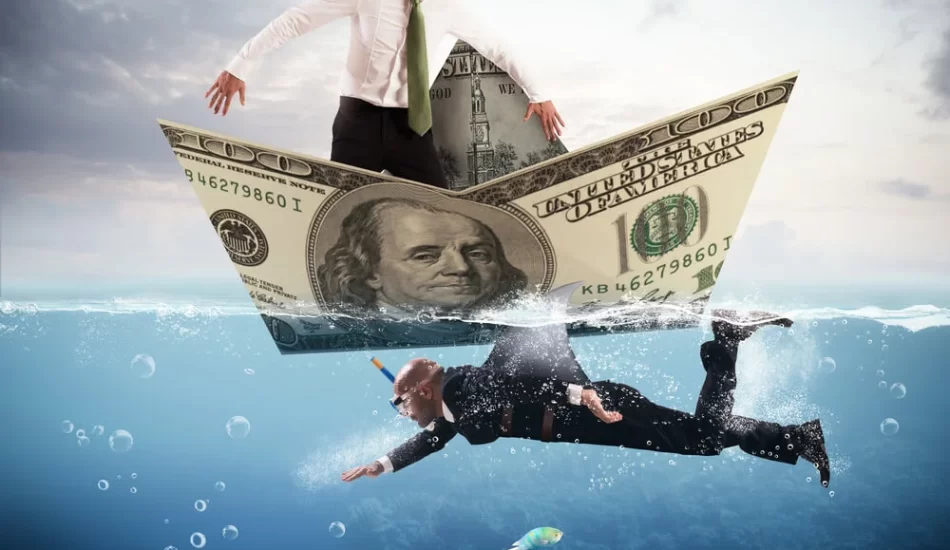|
|
Last
Modified on
May 07, 2025
The Paycheck Protection Program (PPP) has proved to be a much-needed lifeline to more than 5.2 million small business owners and self-employed individuals.
The overwhelming majority of applicants were legitimate and used the funds for the intended purpose, i.e., to sustain their businesses and cover payroll expenditures during the COVID-19 pandemic.
The bad news is the program has also resulted in many allegations of fraud and misuse of the funds. Some people now stand accused of conspiracy, wire fraud, and a host of offenses stemming for PPP loan applications and misappropriation allegations.
We will explain the PPP loan details and tell you how we can help if you’re being investigated or you have been charged.
Impact of COVID-19 on Small Businesses in the US
Besides public health and safety, the pandemic has mostly hit global economies on the business front hardest. The effects have exacerbated deep into the American economy. Local and national commerce is slowing down, jobs have been lost, demand and supply chains are disrupted, staffing and headcount issues are arising, and businesses are forced to shut their operations and liquidate their assets.
The impact is still lingering. However, to help businesses adapt to the new reality, PPP loans came to the rescue as a source of COVID-19 financial relief.
About PPP Loans
The PPP loan was rolled out by the Small Business Administration (SBA) under the Coronavirus Aid, Relief, and Economic Security Act in March 2020.
Although many were reluctant to apply for funding due to the anticipated complexity and eligibility, a large number did, however, and took advantage of this government aid. It provided support to small businesses that needed some extra cash on hand to compensate employees, pay the rent, mortgage, and utility bills, etc., and survive the ongoing economic crises.
Upon fulfilling the requirements, companies could apply for a forgivable loan, turning it into a grant – loan forgiveness was one of its most noteworthy aspects.
The Problem With PPP
The PPP loan was disbursed among eligible applicants to help them operate without significant loss. This effort was put to practice to save the American economy from collapsing. By assisting businesses with payroll, their most significant expense, the PPP loan, was a stop-gap measure to helping the American economy in a crucial period.
Criminal investigations began when applicants submitted false documents, people misinterpreted the requirements, and tens of millions of frauds were identified. While some applicants inadvertently spent the funds without complying with SBA’s terms and conditions, a few others used the loan for personal gains. Mistakes such as not spending at least 60% of the amount on employee payroll within 8-weeks of receiving the same have also attracted criminal charges.
The US Department of Justice (DOJ) has filed charges against 50+ defendants in the case of fraudulently obtaining PPP funds for ulterior motives.
The program has stopped accepting more applications. Existing submissions are currently being probed for possible criminality.
Prosecuting Frauds Under PPP
The most obvious charge is conspiracy to commit bank and wire fraud. These conspiracy charges will rely on records obtained from the time of submission of the PPP application and the funds used after its disbursement. There may also be charges under the False Claims Act.
In the most concrete cases, the government will have receipts and records of large purchases made immediately after the disbursement of the funds. For example, a small business owner buys a luxury boat weeks after receiving a large government deposit.
The government will rely on inference from smaller, more strategic purchases after the funds were disbursed in the more nuanced cases. Think of a new luxury car lease, a watch, or an expensive vacation. They will try to argue that the person couldn’t have afforded those items but for the PPP loan money that was misused. Those cases will be more challenging to prove than the more obvious ones where someone buys a $500,000 boat or a Lamborghini after receiving their PPP funds.
Getting Legal Assistance at the Kirlew Law Firm
PPP intended to extend financial support for business owners; however, some mistakes and greed may have led some small business owners to use the aid and land into legal jeopardy.
If you’re facing fraud charges due to your PPP loan, we at Kirlew Law Firm may be able to help you!
The Kirlew Law Firm has both white-collar crime lawyers and business attorneys to assist you in your case. Fraud and tax evasion are the two most common white-collar crimes that affect business profits. By definition, white-collar crime is non-violent, financially-motivated misconduct that a perpetrator might commit during their business tenure for securing a personal advantage. PPP fraud appears to be a clear case of white-collar crime.
At The Kirlew Law Firm, we concentrate our practice on white-collar criminal defense and tax controversies as well as other regulatory enforcement matters. PPP loan frauds must be taken seriously and if your company is being investigated for the same, consider hiring our skilled and knowledgeable attorneys.
Proving cases like PPP fraud are challenging legal endeavors for the government, but with the right defense, you can fight back and win your case. Get in touch with us, and we will help you protect your interest and fight the possible charges and lawsuits.




